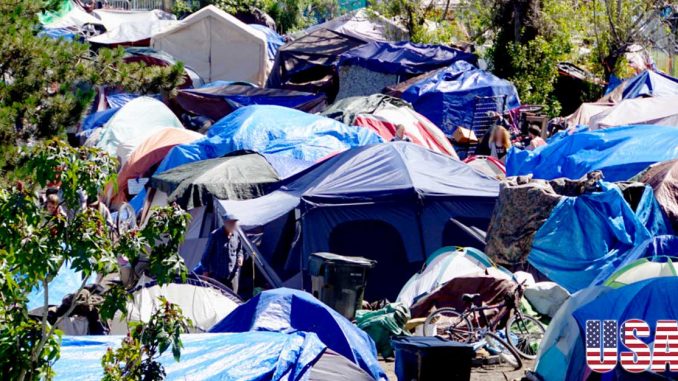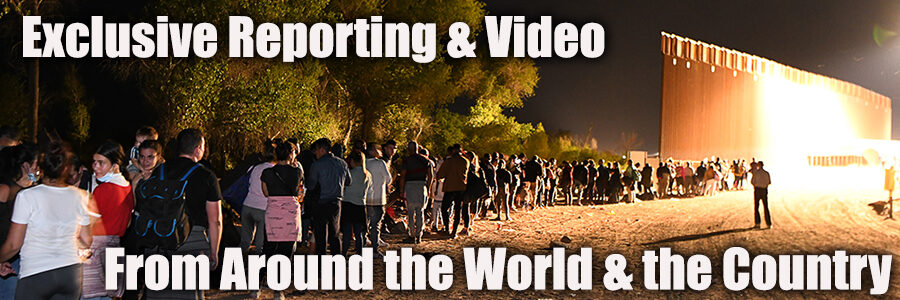
This is a case of “you get what you ask for.” If we are a “nation of laws” but there is no one around to enforce those laws, things get sideways real quick. This Minnesota town is now experiencing a major increase in homeless people camping out where they will and an increase in crime. A 2018 crime report from the Los Angeles Police has homeless people being listed as suspects in 12.6 percent of aggravated assaults, and suspects in 4.3 percent of all crimes. Another report from the Prison Policy Initiative shows that formerly incarcerated persons are 7-13 times more likely to become homeless than the general public. With an increase in homeless people in any area, that area will most likely see an increase in crime (Read my story how I escaped homelessness & a gang when I was a teenager & went on to run for governor). I wonder how long it will be until the residents of this Minnesota town have to call the police because they are victims of crime. Probably not long!
“A Minneapolis community, just a few miles away from where George Floyd died while in the custody of the Minneapolis Police Department, pledged to “check its privilege,” allowing hundreds of transients and homeless individuals to take up residents on their front lawns and pledging not to call the police to handle incidents of drug abuse and mental illness.
RELATED: Seattle Residents & Businesses Sue City For Endorsing & Enabling ‘Lawless’ CHOP Zone
Now that same town’s residents are concerned things have gotten out of hand. Crime is rampant and the homeless encampment now has more than 300 people.
The New York Times reports that Powderhorn Park residents — mostly left-leaning white women — were instrumental in declaring their town a “safe zone” for the underprivileged and pressing the town’s residents to agree to a pact not to call the police or other public safety resources if they felt threatened. After all, their opposition to crimes, including property damage and theft, was born of white privilege.
“In light of Floyd’s police-involved death,” the New York Post added, “residents there have vowed to avoid calling the cops, feeling that doing so could put people of color in danger. But now with hundreds of outsiders flooding the park — drawing in more car traffic, including drug dealers, and resulting in at least two overdoses — the neighbors are facing a moral dilemma.”
In preparation for the project, the women “promised to ignore any property damage, including to their own homes, and filed for a block party permit to limit cars in the neighborhood,” the Post continues. Instead, the women agreed to call a community service organization, the American Indian Movement, to handle incidents of violence or potential violence, and to help constructively quell concerns of mental illness and drug use.
Now, though, some of those same women are trying to come to terms with what’s happened to Powderhorn Park.
“I’m not being judgmental,” one resident, who will no longer allow her children to play in the park-turned-encampment told the NYT. “It’s not personal. It’s just not safe.”
Another resident was forced to confront his own white privilege when he called the cops on teenage boys who tried to rob him of his car at gunpoint. After accidentally giving them house keys, they abandoned their attempt and stole a different neighbors car. He ended up dialing 911 — a move he now regrets because it was just “instinct,” and it likely put the would-be carjackers in danger.
“Been thinking more about it,” that resident told the NYT. “I regret calling the police. It was my instinct but I wish it hadn’t been. I put those boys in danger of death by calling the cops.”
“[I]t was scary but the cops didn’t really have much to add after I called them,” he added. “I haven’t been forced to think like this before. So I would have lost my car. So what? At least no one would have been killed.”
The park at the center of town had just 25 tents when it formed up, but now the homeless encampment has 300 residents, many of whom are suffering from some form of mental illness or who are known drug users.
That doesn’t bother the progressives who’ve vowed to avoid allowing law enforcement to handle criminal situations.
“My feeling around it is those are symptoms of systemic oppression,” one resident explained. “And that’s not on them.””
Jeff Rainforth is the photographer & news editor for Airman Kolfage’s We Build the Wall, Inc.
Like Jeff on Facebook HERE
Follow him on Twitter HERE
Subscribe to Jeff’s YouTube channel HERE
